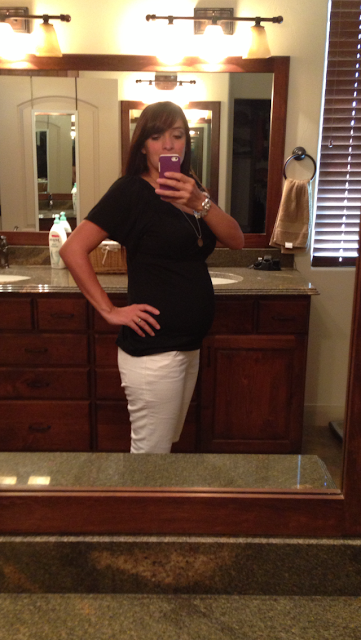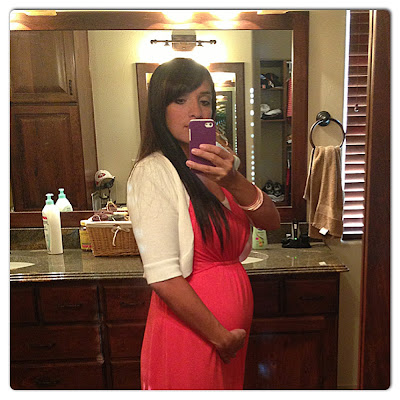So since the beginning I've been so excited to share with all of you the sex of B & C's beautiful baby..... I knew it was very important for all the world to hear it through C's blog first (wanted to make sure "she" was the one to tell her friends and family) so I had to make sure that she posted before I did here! It's been killing me since yesterday! I wanted to post the second I left the Dr.'s, what strength I have!!! LOL So, I apologize for all you amazing people that have messaged me or emailed me to "hurry up and post!" :)
It's a....... Baby Boy!!!
.PNG) |
| Yep, ALL Boy! |
.PNG) |
| How cute is this profile? Look at his little leg! So Sweet! |
A very active little boy at that! He looks really healthy and is in the 67th percentile! He is about 3/4 of a lb already! Also, He is measuring big but only 5 days early according to the ultrasound tech, but according to my Doc when he measured he said 21 weeks! Which I should only be 19 today. Maybe B & C will have their precious son a little sooner in December!
They did notice that his kidneys were a tiny bit dilated but they didn't seem to worry? Doc said he'll do a follow up ultrasound in 4 weeks but the fluid looks great in the amniotic sac so B & C shouldn't worry. Scared the life out of both C and I when the tech first mentioned it! o_o Also, another thing is I've been saying all week that I haven't felt this little guy move as much lately, well it appears that I have an Anterior Placenta. :( For those of you who aren't exactly sure what that is, here you go:
It means your baby is taking a backseat to the placenta. The term "anterior placenta" refers to the location of the placenta within your uterus. Most of the time, a fertilized egg will situate itself in the posterior uterus — the part closest to your spine, which is where the placenta eventually develops, too. Sometimes, though, the egg implants on the opposite side of the uterus, closest to your abdomen. When the placenta develops, it grows on the front (or anterior) side of your uterus, with the baby behind it.
Does the location of your placenta make any difference? Not to your baby, who doesn't care which side of the uterus he or she is lying on, and it certainly makes no difference to him or her where the placenta lies. And what about to you — or your practitioner? You might be less able to feel your baby's early kicks and punches because the placenta will serve as a cushion between your baby and your tummy. For the same reason, your doctor or midwife may find it a bit harder to hear fetal heart sounds. These situations will resolve if the placenta moves into a more posterior position later on (as anterior placentas commonly do). But the good news here is that, despite those slight inconveniences, an anterior placenta in and of itself poses no risk to your health.
If, however, you have an anterior placenta that is also lying quite low in your uterus, it could partially or completely block off the cervix (and the baby's way out), a condition called placenta previa (which can make a cesarean section necessary). But again, because the placenta generally migrates around in the uterus quite a bit during pregnancy, a low-lying placenta will very often have moved into the upper part of the uterus — and safely out of the baby's way — by the time you're ready to deliver.
Weight Gain: 12 lbs! (Don't judge me, lol!) :)
Cravings: Watermelon, Grapes, Strawberries, Peaches, Plums, Smoothies, Salads, Cottage Cheese, Subway, Veggie Delight from Jimmy Johns, PB&J, Ice Water, Apple Juice.
Symptoms: Massive Headaches, Ligament Pain, Heartburn, Trouble Sleeping.
 | |
| 19 Weeks! |

Their baby's the size of a mango!
He is about 6.0 inches long and weighing in at about 8.5 ounces, he's getting there!

Their baby at 19 weeks
- Developing a protective coating over his skin, called vernix caseosa. It's greasy and white and you may see some of it at his birth.
- Working on his five senses. Nerve cells for his sense of taste, hearing, sight and smell are developing in his brain.




.PNG)











